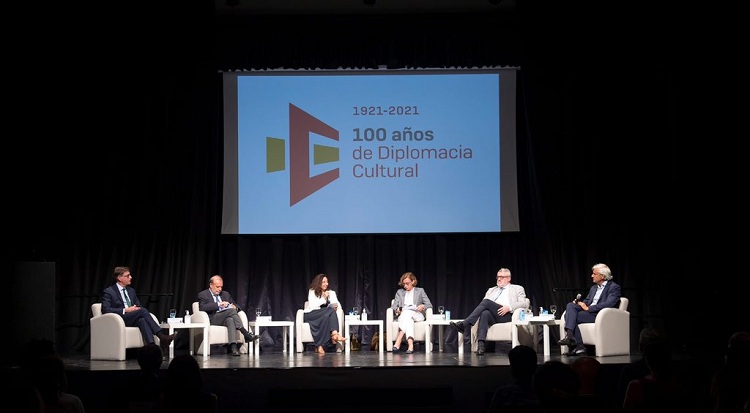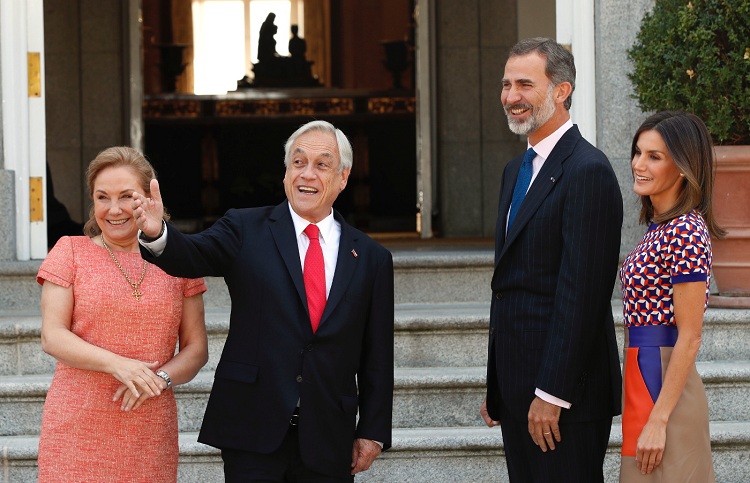The Diplomat
The year 2021 marks the 100th anniversary of the creation of the Office of Cultural Relations, under the then Ministry of State, now the Ministry of Foreign Affairs, and the first step towards the institutionalization of culture as an essential element of Spanish foreign policy.
The Office, created a century ago, is the immediate predecessor of the current Directorate of Cultural and Scientific Relations of the Spanish Agency for International Development Cooperation (AECID), whose triple mandate includes cultural promotion and cooperation, coordination and promotion of bilateral and multilateral relations with UNESCO and SEGIB, and the training and recruitment of talent, both for Spanish citizens and for citizens of partner countries of Spanish Cooperation.
To carry out its work, the Directorate is present in 122 Spanish Embassies abroad and relies on the Network of Cultural Centers of Spanish Cooperation, consisting of 18 centers, or institutions such as the Royal Academy of Spain in Rome, which will be 150 years old in 2023. The Directorate also finances, through Spanish Cooperation scholarships, postgraduate studies, research stays, music or Spanish lexicography in Latin America, the Mediterranean and Sub-Saharan Africa.
Thanks to these resources, the AECID coordinates Spanish cultural action abroad, which is carried out through the Ministry of Culture and Sports, the Cervantes Institute, the Spanish Cultural Action and the Ministry of Foreign Affairs. In addition, this year the Agency holds the rotating presidency of the European network EUNIC, which encompasses the national cultural institutes of the European Union and operates in more than 100 countries.
To commemorate the centenary, the Ministry of Foreign Affairs and the AECID held a round table discussion last Thursday at the Círculo de Bellas Artes in Madrid, chaired by the director of the AECID, Antón Leis (who stated during the closing ceremony that “cultures are part of our being and shape identities, but they also offer social and economic development and are a vaccine against inequality and intolerance”), and the Agency’s Director of Cultural and Scientific Relations, Guzmán Palacios, with the participation of the directors of the main Spanish cultural institutions with international projection: Museo del Prado, Teatro Real, Instituto Cervantes, Acción Cultural Española and the Directorate General of Fine Arts of the Ministry of Culture and Sport. The event was attended by more than 70 cultural counselors from foreign embassies accredited in Madrid.
During the round table, the speakers highlighted the richness of Spain’s historical and artistic heritage and recalled that Spain is, with 49, the third country in the world with the third largest number of properties included in the UNESCO World Heritage List, behind only Italy and China. They also highlighted UNESCO’s recent decision to include the Paseo del Prado and Buen Retiro. Madrid’s Landscape of Arts and Sciences as a World Heritage Site, a recognition “that has been possible thanks to the coordination of several Spanish public administrations with the participation of the Ministry of Foreign Affairs”, according to the AECID.
The participants also highlighted the importance of the Spanish language, which is spoken by almost 600 million people worldwide, making it the second most widely spoken mother tongue and the third most spoken language globally after English and Mandarin Chinese.
The event also served to highlight the role of Spain’s cultural and creative industries, which in recent decades have become an important economic catalyst for Spain, contributing more than 3% of Spain’s GDP and generating cultural products and goods “that represent Spanish society through their dynamism, creativity and innovation”. Likewise, the speakers recalled that, in the midst of the pandemic, Spain became, in June 2020, the only country in the world to keep its cinemas, theaters and museums open. In this regard, representatives of the Prado Museum and the Royal Theater took the opportunity to share their first-hand experience.
.







